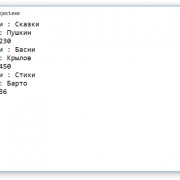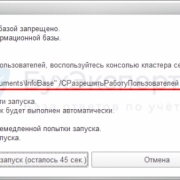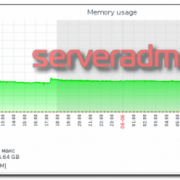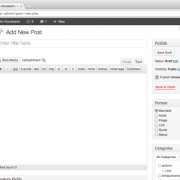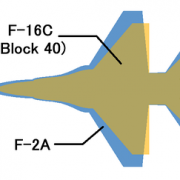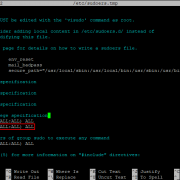Bitdefender antivirus free: отзывы
Содержание:
- Bitdefender review: Bitdefender Antivirus for Mac 2020
- Some Changes to Features
- Мнения пользователей разделились
- Bitdefender review: Bitdefender Internet Security 2020
- Meaning of Bitdefender Internet Security 2016 PCMag review?
- Bitdefender review: Performance and system impact
- Other Shared Features
- Bitdefender’s Unobtrusive Firewall
- Antivirus
- Как мы тестировали
- Полный архив наших тестов бесплатных антивирусов
- Отряд самоубийц
- Bitdefender Antivirus Free Edition
- Protection
- Bitdefender review: Bitdefender Premium Security 2020
- Small Performance Hit
- Anti-Theft for Windows
- Bitdefender review: Antivirus performance
- Bitdefender Antivirus Free Edition
Bitdefender review: Bitdefender Antivirus for Mac 2020
- Same virus and malware protection offered as with Windows version
- Fewer extras thrown in compared to Windows version
Unlike other antivirus solutions out there, Bitdefender has a separate program for Windows and Mac computers, so if you’re using an Apple Mac or MacBook, this is your entry-level antivirus program. It’s functionally identical to the windows version, but sadly with some of the extra features missing.
Bitdefender Antivirus for Mac still has the same excellent core protection though, offering a rock solid defense against viruses, malware, adware, and spyware. You also still get the limited VPN access, but most of the other features of the Windows version aren’t here yet. Still, if you need a steadfast antivirus for your Mac computer, this is your best bet (unless you’re willing to upgrade to Bitdefender Total Security 2020.
You can either get cover for one or three Mac devices with this option. Pricing starts at $19.99 for the first year and then $39.99 per year after that to cover a single device, while the three device cover costs $29.99 for the first year and then $59.99 onwards from there.
Some Changes to Features
Those familiar with previous versions of this product may note the absence of Startup Optimizer and Disk Cleanup from the Utilities page. The elaborate Startup Optimizer analyzed programs that launch at startup, letting you know how much time each took to load. It also allowed you to reversibly disable launch of any startup program or set it to launch after a delay. Disk Cleanup identified huge files, ones that you might want to delete if you’re low on disk space.
My Bitdefender contact explained that “less used and timeworn secondary functionalities have been removed…as part of a continuous revision in terms of user needs.” Also dropped are the Safe Files component, which aimed to balk ransomware by banning unauthorized changes to protected files, and the File Vault encryption system. Note that enhanced Ransomware Remediation takes up the slack left by removing Safe Files. In testing, it proved effective.
Premium parental control was never built into Bitdefender’s suite products. Rather, it was an add-on, with an additional price of $49.99 per year. This ambitious project used artificial intelligence to analyze the child’s texts and other instant messages for signs of cyberbullying and other troubles. The system didn’t directly expose the child’s communication to parents. Rather, it flagged the type of problem detected and directed parents with advice such as «Listen to your child. Find out exactly what happened and how he/she felt and why.»
Apparently, this system didn’t get enough users to merit its continuation. Bitdefender no longer offers premium parental control.
Мнения пользователей разделились
Но почему же отзывы о Bitdefender, публикуемые на всевозможных форумах в интернете различаются так кардинально? Прежде всего, основной негатив касается исключительно неудобств, связанных с невозможностью установки расширенных пользовательских настроек и «нормальным» отключением процесса сканирования. С другой стороны, все те, кто особо не вникает в настройку антивируса «под себя» наоборот отмечают, что достаточно просто установить это защитное ПО и забыть о нем, поскольку всю основную работу в плане обеспечения защиты компьютерной системы антивирус выполнит сам без необходимого вмешательства со стороны пользователя. Насколько это удобно, судить трудно, однако отсутствие настройки пользовательских опций все равно не добавляет этому приложению популярности. Кроме всего прочего, если сравнить его с платными продуктами, которые можно инсталлировать, например, на пяти машинах одновременно с одной лицензией, то и по встроенным модулям защиты бесплатная модификация тоже проигрывает слишком сильно. Но вот низкое потребление системных ресурсов в паре с достаточно высоким уровнем защиты даже безнадежно устаревших систем явно свидетельствует в пользу этого программного продукта.
Bitdefender review: Bitdefender Internet Security 2020
- Firewall
- Parental controls
Back to Windows only products again now, the next step up the ladder is Bitdefender Internet Security 2020. This upgraded version is a more complete online security package and comes with a built-in firewall to protect your computer from online threats. There are also a suite of parental controls that let you ensure that your children are safe online, and that they aren’t visiting any websites or using any apps that they shouldn’t be.
Finally, this package also comes with Webcam and microphone monitoring and protection, so you can be sure that there won’t be anyone snooping in on your online conversations if you’re chatting over Zoom.
Again, pricing on Bitdefender Internet Security 2020 varies depending on how many devices you want to cover:
- 1 device: $29.99 for the first year, $59.99 annually after that.
- 3 devices: $39.98 for the first year, $79.99 annually after that
- 5 devices: $84.99 annually
- 10 devices: $89.99 annually
(Image credit: Bitdefender)
Meaning of Bitdefender Internet Security 2016 PCMag review?
Bitdefender Internet Security 2016 PCMag review is the error name that contains the details of the error, including why it occurred, which system component or application malfunctioned to cause this error along with some other information. The numerical code in the error name contains data that can be deciphered by the manufacturer of the component or application that malfunctioned. The error using this code may occur in many different locations within the system, so even though it carries some details in its name, it is still difficult for a user to pinpoint and fix the error cause without specific technical knowledge or appropriate software.
Bitdefender review: Performance and system impact
Bitdefender Total Security delivers an enviable combination of fast scans and minimal impact on system performance.
To measure its impact, we used our custom benchmark test, which clocks how long a PC’s CPU takes to match 20,000 names and 20,000 addresses in an Excel spreadsheet. Our Lenovo ThinkPad T470 test bed had a 2.5GHz Core i5-7200U processor, 8GB of RAM and 256GB of solid-state storage with 43.3GB of files.
Before loading any software, the T470 took an average of 8.2 seconds to complete the benchmark, which rose by 15% to 9.4 seconds after Total Security was installed. This passive- performance loss is a bit less than Kaspersky’s 18% hit.
Bitdefender 2020 full scan (Image credit: Bitdefender)
While a Bitdefender Quick Scan ran, the benchmark completion time held steady at 9.4 seconds. During a full scan, the benchmark finished in 9.6 seconds, 16% slower than before Bitdefender was installed, but only 2% slower than with Bitdefender running in the background.
By comparison, Kaspersky’s full-scan performance score yielded a drop of 41% from the background rate, and 67% from the preinstallation baseline.
AV-Comparatives’ Performance Impact test, in which lower numbers translate to better performance, rated Bitdefender Total Security an 8.3 — better than Trend Micro Maximum Security’s 13.7 but short of McAfee Total Protection’s 0.8.
Overall, Bitdefender’s scanning engine was fast and thorough. It took only 15 minutes and 1 second to comb through the entire drive on its first pass to look at 1,136,735 files. As it gets to know your system (and what to ignore), Total Security gets even better; it ended up running a full scan that examined 639,468 files in just 2:52.
That’s only a minute longer than Bitdefender Total Security’s 1:58 Quick Scan, which scanned 9,117 of the system’s most critical files. Other antivirus programs have faster quick-scan options, but none can churn through a system faster than Total Security.
Bitdefender’s antivirus includes a ton of features that many companies would reserve for a full security suite. Bitdefender Wallet is a complete, if basic, password manager. It captures and replays your passwords, syncs across devices, generates strong passwords, and even fills web forms with your personal data.
When you visit a bank website or other financial site, Bitdefender offers to open the site in Safepay. Safepay is a separate desktop, isolated from other processes, that includes a hardened browser. Wallet works with Safepay, and you can enable Flash if you must, but it accepts no other add-ons. The Safe Money feature in Kaspersky’s suites offers similar protection, as does ESET Internet Security’s Banking and Payment Protection system.
The Anti-tracker features installs as a browser extension to block ads and other trackers on the web pages you peruse. It displays the number of trackers from the current page on its toolbar button; you can click the button for details. Trackers can ignore the official Do Not Track header with impunity, but Bitdefender actively shuts them down.
Bitdefender Antivirus also includes a full scale virtual private network, or VPN. You’ll need to read the antivirus review for results of the deep dive into this component by PCMag’s VPN expert, Max Eddy. Very briefly, it’s based on Hotspot Shield and uses that company’s infrastructure, but with additional privacy layers. Out of the box, it gives you 200MB of bandwidth per device per day, using a program-selected server. To lift the bandwidth cap and gain access to all servers, you need a separate subscription, which lists for $39.99 per year or $6.99 per month. Note that the premium VPN is not sold separately; you can only purchase it as an add-on to a Bitdefender antivirus or suite product.
The list of advanced features just goes on and on. A Vulnerability scanner identifies missing security patches for Windows and popular programs, as well as weak Windows account passwords. The profile system can automatically configure Bitdefender to conform with your activities such as working or watching movies. If pernicious malware resists Bitdefender’s basic protection, just reboot into the Rescue Environment, which launches before Windows. Windows-based malware can’t run, and hence can’t defend itself.
You can use the File Shredder to permanently delete sensitive files, so that not even a forensic technician can recover them. And all of these features come in what’s nominally a standalone antivirus utility.
Bitdefender’s Unobtrusive Firewall
Bitdefender’s firewall correctly blocked the web-based port scan tests I hit it with, and even popped up a port scan warning. It correctly put all the system’s ports in stealth mode. To be fair, if you have a home network, the devices connected to it already enjoy the protection of network address translation, or NAT. Their IP addresses are local to the network, not visible from the internet, and hence not subject to port scan attacks. My test system needs a special configuration to avoid protection by NAT.
The flip side of firewall protection involves monitoring how programs on your system make use of your internet and network connection. In its default Autopilot mode, Bitdefender’s firewall configures access permissions for known programs and monitors unknowns for any signs of network chicanery. Norton works in much the same way, and the levels-of-trust system in Kaspersky Internet Security is also similar.
For those who want notification every time an unknown program attempts access, Bitdefender used to offer Paranoid Mode. That option still appears, but under the less-loaded name Alert Mode. Turn on this mode and the firewall asks you what to do every time it detects a new process attempting network access. How would you react on being asked whether nsaprog.exe should be allowed an outbound connection to http://104.94.129.3 using port 8088? Most users should leave Alert Mode alone.
Protection against network-based attacks that try to exploit security vulnerabilities on your system is a feature often associated with a firewall component. With Bitdefender, that Network Threat Protection component comes with the antivirus. As noted above, it fended off 74 percent of the exploit attacks I generated. Norton routinely scores over 80 percent, but Bitdefender came close to that.
Firewall protection isn’t worth much if a zero-day malware program missed by the antivirus can reach in and turn it off. I found no way for a program to simply flip a switch in the Registry to turn off protection (no big surprise; that’s an old trick that hardly ever works anymore). I found that I could terminate some less-central components like the parental control updater and system tray interface, but the core components resisted attack, and revived the ones that I managed to kill.
Loading up a view of Windows services, I found nine Bitdefender services running, up from seven at my previous review. I found I could stop the VPN service, parental controls, and something called Product Agent Service, but the Stop link didn’t even appear for the important ones. When I tried to set the startup status for those important services to Disabled I just got an «Access is denied» error. Bitdefender remains thoroughly hardened against direct attack.
Antivirus
Bitdefender Antivirus Plus 2020 supports several scan modes. Quick Scan checks the most commonly infected areas, and System Scan examines everything. Furthermore, File Explorer integration enables scanning objects from Explorer’s right-click menu, and there’s a bootable rescue environment to assist in cleaning the most stubborn threats.
A Manage Scans tool lets you create new scan types to check specific files and folders, as well as configuring how the scan works, and setting it up to run on a schedule, or on-demand only. This works well enough, although it doesn’t begin to provide the expert-level options that we’ve seen from vendors like Avast and Avira. Unfortunately, you can’t pin your custom scan type to the main dashboard, either, so it’s always at least three clicks away.
Bitdefender’s antivirus settings can’t match the geek-level configurability of some of the competition, either, but they’re well-judged and focus on the functions you’re more likely to need.
You don’t get intimidating and overly technical options to scan RAR archives to a nested depth of 4, but not scan TARs, for instance – there’s just the usual ‘scan archives, yes or no?’ setting.
Default scanning speeds are decent, with Quick Scans taking around 15-30 seconds on our test computer. Regular scans started a little slowly at 25 minutes to check 50GB of files, but this dropped to under six minutes on the second run, and by the third run the scan time was just 67 seconds.
The scanning engine is smart enough to handle simultaneous scans without difficulty, too. If you’re running a lengthy full system scan, for instance, you can still run an on-demand scan of a recent download, or anything else you like. A window pops up to display the results of your second scan, while the first scan continues to run in the background.
The total sum of this is a polished set of malware-hunting tools which go well beyond the basics, but remain easy to use for not-so-technical types. Experts might wish there were a few more fine-tuning options, but in general Bitdefender gets the configurability balance right.
(Image credit: AV-Comparatives)
Как мы тестировали
Следуя давно отработанной стратегии, мы использовали клоны чистой виртуалки, обеспечивающие равные условия для тестируемых антивирусов. Сама же проверка в этот раз была устроена иначе. Мы отобрали 25 самых интересных зловредов и разделили бой аверов с ними на два раунда. В первом из них антивирус должен просто распознать дремлющее зло, лежащее на диске в открытом виде или прячущееся в многоуровневом архиве. Во втором — сразиться с отрядом малвари за контроль над операционкой, имея фору в виде предварительного запуска.
Все зловреды были отобраны случайным образом и только среди распространяемых в диком виде. Они загружались в ноябре с разных источников и без использования какого-то эталонного антивируса в качестве распознавалки. Арбитром был Hex-редактор и ресурс VirusTotal, на котором сейчас задействованы более полусотни антивирусных движков. Поскольку все вредоносы собирались с подозрительных сайтов и вытряхивались из почты накануне тестов, среди них есть и новые образцы, которые пока мало кто определяет.
Бытует мнение, что всякая малварь — это удел Windows, а Linux и другие UNIX-подобные операционки имеют к ней врожденный иммунитет. Поэтому мы включили в подборку не только виндовые бэкдоры, трояны и руткиты, но и несколько зловредов для Linux, Android и macOS. Качественный антивирус должен уметь распознавать заразу в любом обличии, тем более что кросс-платформенные сценарии заражения часто встречаются на практике. Подключаешь к инфицированному компу с Windows свой Android-смартфон, и он уже протроянен.
Как всегда, тестовой средой служили идентичные виртуалки Windows 10 Pro x86 с последними обновлениями. «Защитник Windows» и фильтр SmartScreen были отключены, а UAC, который мы с Алисой ⓕⓤⓒⓚ в недавней статье, оставался активным. Последние версии бесплатных антивирусов загружались с официальных сайтов, а их базы обновлялись непосредственно перед началом эксперимента.
Полный архив наших тестов бесплатных антивирусов
- Kaspersky Free, Avira Free, AVG Free и Avast! Free
- Comodo, Qihoo 360, Panda и Windows Defender
- Clam Sentinel, FortiClient, Tencent и NANO Антивирус
- Ad-Aware, Crystal Security, Sophos Home и ZoneAlarm + Firewall
- Anvi Smart Defender Free, Baidu Antivirus, Immunet AntiVirus и Zillya!
Отряд самоубийц
Тестовая подборка была сформирована из малвари четырнадцати разных типов. В отряд специального назначения вошла пара зловредов для ОС Android, три для Linux и один для macOS. Остальные вредоносы предназначались для Windows. Среди них есть три бэкдора, два руткита, два сетевых червя, один вирус в истинном значении слова и одиннадцать троянов всех мастей. Ссылки на их описание в VirsutTotal представлены ниже:
- Android-01.tst
- Android-02.tst
- Linux-01.tst
- Linux-02.tst
- Linux-03.tst
- OSX.tst
- Win32-Backdoor-01.tst
- Win32-Backdoor-02.tst
- Win32-Backdoor-03.tst
- Win32-Rootkit-01.tst
- Win32-Rootkit-02.tst
- Win32-Trojan-Banker.tst
- Win32-Trojan-Graftor.tst
- Win32-Trojan-JS.tst
- Win32-Trojan-MBR.tst
- Win32-Trojan-Ransom-01.tst
- Win32-Trojan-Ransom-02.tst
- Win32-Trojan-Spy-01.tst
- Win32-Trojan-Spy-02.tst
- Win32-Trojan-Spy-03.tst
- Win32-Trojan-StartPage.tst
- Win32-Trojan-Yakes.tst
- Win32-Virus.tst
- Win32-Worm-01.tst
- Win32-Worm-02.tst
Загрузка …
Bitdefender Antivirus Free Edition
Программа очень скромно рекламирует себя как «лучший из бесплатных антивирусов». После установки она подчеркивает свое преимущество над AVG, Avira и Avast!, демонстрируя график с какими-то показателями эффективности в попугаях.
Скромный Bitdefender
Раунд 1
Bitdefender в первом раунде не определил вообще ни одной тестовой угрозы — здесь даже не о чем писать. Мы пробовали давать малварь на проверку из контекстного меню по одной и скармливать антивирусу весь каталог с ними скопом — без разницы.
Вариант 1. Присоединись к сообществу «Xakep.ru», чтобы читать все материалы на сайте
Членство в сообществе в течение указанного срока откроет тебе доступ ко ВСЕМ материалам «Хакера», увеличит личную накопительную скидку и позволит накапливать профессиональный рейтинг Xakep Score!
Подробнее
Вариант 2. Открой один материал
Заинтересовала статья, но нет возможности стать членом клуба «Xakep.ru»? Тогда этот вариант для тебя!
Обрати внимание: этот способ подходит только для статей, опубликованных более двух месяцев назад.
Я уже участник «Xakep.ru»
Protection
Bitdefender Antivirus Free Edition may be short on features, but it gives you the same core antivirus engine as the commercial packages, and we found it was just as effective at detecting and blocking malware and dangerous URLs.
The one exception was its performance with our own custom ransomware. Bitdefender Antivirus Plus detected and blocked this from its behavior alone; Bitdefender Antivirus Free wasn’t smart enough to do that, and our ransomware simulator was able to encrypt thousands of files. This suggests that although the free edition will block known ransomware, it might not be as effective in protecting you from brand new threats.
Although that’s not ideal, independent testing from AV-Comparatives, AV-Test and others consistently places Bitdefender at or near the top of their respective protection ratings, meaning it is one of the most accurate engines around.
What’s more, Bitdefender is significantly better at blocking malicious URLs than most of the competition, which may help you avoid infection from the latest ransomware (and other threats) in the first place.
Put it all together and Bitdefender Antivirus Free Edition is a capable antivirus offering which is good enough to outperform some of the commercial competition. But it doesn’t quite match the protection of the paid versions, and we would recommend upgrading to one of those, if you can.
Want to compare Bitdefender to its rivals? Check out our best antivirus guide
Bitdefender review: Bitdefender Premium Security 2020
- Priority support
- Unlimited VPN usage
We’ve reached the top of the mountain here with Bitdefender Premium Security 2020, which is the most expensive and comprehensive home plan that Bitdefender offers. There is only one option here that covers 10 devices (Windows, Mac OS, Android, and iOS) and it costs $89.99 for the first year and then $149.99 annually for every following year.
But what do you get for that extra cost? Well you get unlimited VPN usage, which is a vast improvement on the 200MB per day limit that the other plans get. You also receive priority support in the event of an emergency or issue, so you’ll get to jump the queue when waiting to speak to the Bitdefender support team. Is it worth the price jump? Only if you’re looking to make serious use of the VPN, as subscriptions to those can be quite pricey in their own right.
Small Performance Hit
If a security product causes a noticeable system slowdown, users are just going to turn it off. That being the case, poor performance equates to poor security. The companies that make these products work hard to minimize any system impact. Bitdefender did well my performance tests, but not as well some competitors.
Loading up a big security suite at Windows startup could leave you waiting around to use the computer. To measure boot time, I run a script that checks CPU usage every second, calling the system ready when it tracks 10 seconds in a row with CPU usage under five percent. Subtracting the start of the boot process (reported by Windows) yields a measure of boot time.
I run multiple tests on a clean, physical computer, then install the suite and run another set of tests. Comparing the two averages yields a measure of impact on the boot process. With Bitdefender installed, boot time increased by 33 percent, up from 26 percent last year. It’s worth noting that the 33 percent increase comes to about 15 seconds, and that most of us don’t reboot all that often.
My file move and copy test attempts to measure a security suite’s effect on day-to-day file manipulation activities. A script times how long it takes to move and copy a large collection of varied files between drives. As before, comparing the average time with and without the suite yields an impact measure. Another script measures the time required to repeatedly zip and unzip that same file collection.
The zip and unzip test didn’t take any longer with Bitdefender installed, but the time required for the move and copy test increased by 27 percent. That’s more than many.
Other have exhibited a much smaller impact. ESET, K7, and Webroot SecureAnywhere Internet Security Plus didn’t slow any of my performance tests. While Bitdefender’s test showed a greater impact, it still wasn’t anything that I noticed in using the product.
Anti-Theft for Windows
For a blocky desktop computer that sits in your home, or in a locked office, theft isn’t the biggest worry. However, modern laptops are so powerful that many individuals (and companies) skip the desktop altogether. It’s convenient to take your computer wherever you want, but for a thief, it’s just plain convenient to take your computer.
You don’t have to do anything special to enable anti-theft on a Windows laptop. To manage this feature, you log into Bitdefender Central. Buttons on the Anti-Theft page let you locate, lock, or wipe the device. The option to sound a loud alarm is Android-only.
When the device connects via Wi-Fi, Bitdefender gets its location using Wi-Fi triangulation. In testing, this proved quite accurate. However, on an Ethernet connection it falls back on IP address geolocation, with much coarser accuracy. You’ll be lucky if it gives you the right city. In my case, it located the laptop about ten miles away, in the middle of a park. Fortunately, a stolen laptop will almost always connect via Wi-Fi.
If the thief stole your laptop while it was logged in to your account and managed to run off without letting it go into sleep mode, you might have a problem. Fortunately, you can send a command to remotely lock your user account. Without your Administrator password, the thief can’t get at your data. Do be sure to use a strong password to protect your account. Carrying around a computer with no password protection is foolish, but if you do, Bitdefender can still help. You get a chance to add a password during the lock process, and this will continue to be your login password.
That’s it for anti-theft, but really, this is everything you need for a laptop. Yes, the option to sound an alarm is absent, but you’re a lot more likely to lose an Android phone around the house than a laptop. You can locate a lost or stolen laptop and lock it to prevent misuse. If it’s hopelessly unrecoverable, you can send a remote command to wipe the device, keeping your data out of unfriendly hands.
Bitdefender review: Antivirus performance
Each of Bitdefender’s five Windows antivirus programs uses the same malware-detection engine, which provides very good, though not quite flawless, protection.
As of June 2020, Bitdefender’s virus-signature matching had detected 100% of known, widespread malware in each of German lab AV-Test’s monthly tests dating back to January 2017, with the exception of February 2017, in which it detected a nearly-identical 99.9%.
Bitdefender’s heuristic monitoring missed some previously unseen «zero day» threats in three out of those 28 months of testing, including two scores of 98.8% in February and June 2019. Nonetheless, it scored 100% from September 2019 onward.
This puts Bitdefender a step behind Kaspersky and Norton, which each had perfect records from January 2017 until April 2020, when both missed a few zero-days threats that BItdefender caught.
Overall, Bitdefender has stayed on about an even pace with Trend Micro, which had nearly identical AV-Test results, and ahead of ESET, McAfee and Microsoft. (Another product we’ve reviewed, Sophos, did well in enterprise-software testing but has not recently submitted its consumer software to AV-Test.)
Bitdefender 2020 (Image credit: Bitdefender)
Bitdefender does tend to register more false positives, or benign software misidentified as malicious, than some other programs, which can lower a user’s confidence in the program. But its numbers were still rather low in AV-Test’s results.
No brands have flawless records in Austrian lab AV-Comparatives’ «real-world» tests, which expose antivirus software to online malware. Bitdefender stopped 99.5% of theats in February-March 2020, a bit worse than its 99.7% average in July through October of 2019 or its 99.9% average in February through May 2019.
That’s a bit behind Kaspersky and Norton, which each aced two of those three rounds, and Trend Micro, which aced the most recent one. Still, Bitdefender was ahead of ESET, McAfee and Microsoft.
Bitdefender has not been tested in the most recent evaluations by London-based SE Labs. In June 2018, the latest test for which we have the results, Bitdefender notched a middle-of-the-road 96% total-accuracy score.
Bitdefender Antivirus Free Edition
Уже давно не новость, что современный и технологичный мир представляет собой сложную и многоуровневую систему, которая наводнена не только положительными персонажами, но крайне недоброжелательными субъектами, жаждущими овладеть Вашими личными данными и финансовыми средствами. Всё, что сегодня человеку дорого имеет непосредственное отношение к информационным компьютерным системам, которые в свою очередь могут быть подвержены вирусным атакам и другим воздействиям посредством программной среды, которые, как это не удивительно, при всём своём многообразии и продвинутости имеют слабые места.
